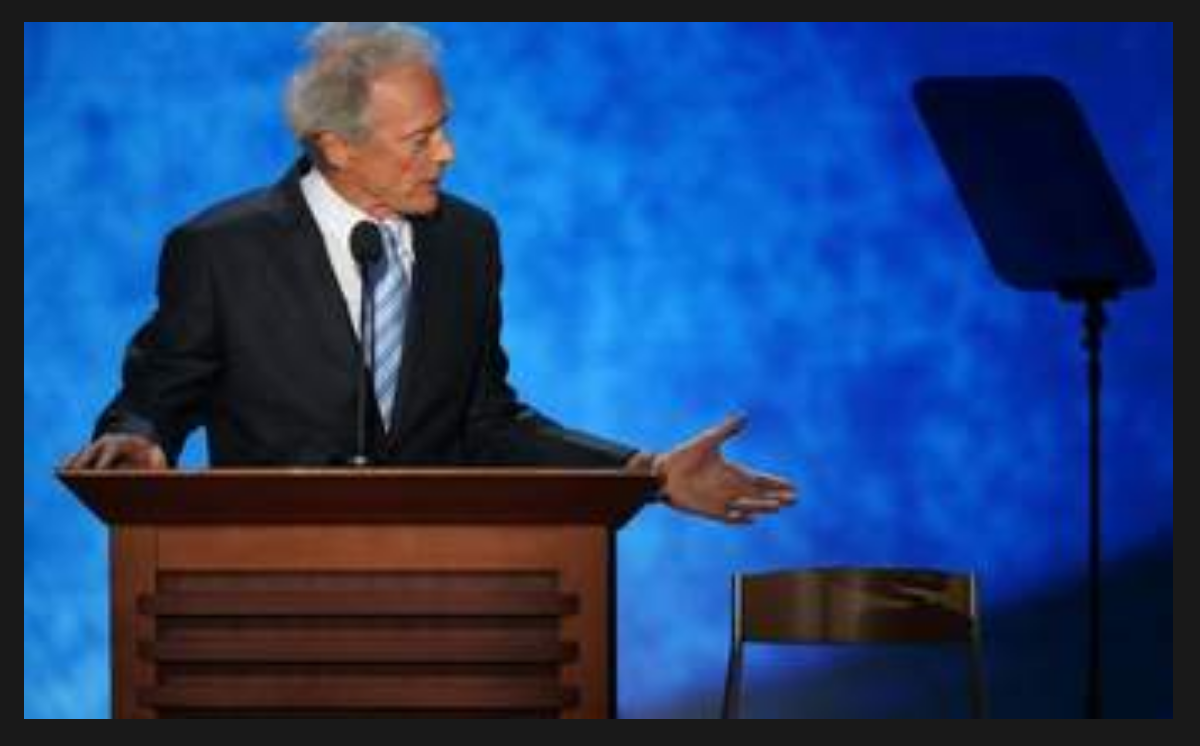Can an empty chair make you a better speaker?
At the Passover Seder, Jewish people around the world leave an empty chair at the table and pour a glass of wine for the prophet Elijah, in case he should happen to stop by. The modern personal development movement echoes this gesture by inviting us to “make space in our lives” for abundance, love, work…whatever our goals may be. After all, when Elijah—or abundance—shows up, you want to have a comfy place for them to settle in and stay a while.
CEO Jeff Bezos has adopted a similar tradition over at his shop, a little business called Amazon: Whenever he holds a meeting, he places an empty chair in full view of the participants. It invites them to think about the stakeholder who’s not in the room—the stakeholder without whom none of them would be in the room: The Customer.

If you talk to the empty chair onstage, people might think you’re crazy. It’s for rehearsal only!
I often advise my coaching clients that when they sit down to write a speech, they should imagine themselves not speaking to an entire audience, but having a conversation with one colleague. (And make sure it’s a colleague you like.)
But I think I’m going to add the Bezos twist from now on: Keep an empty chair in the room when you’re writing.
What can an empty chair tell you?
As you have that conversation with your imaginary colleague—or, even better, as you go over what you’ve written and edit that conversation—let the chair remind you of how your words affect your audience. After all, without an audience, no one would need you to give a speech. Right?
So ask yourself:
- Am I addressing the listener’s concerns? Acknowledging their challenges? Offering solutions?
- Is my message clear? Would someone outside my company or my industry understand what I’m talking about? Or care?
- Have I given the audience an opportunity to make an emotional connection with what I’m saying?
- Is my message worth the time the audience has invested in listening to it? Is it worth my time to give it?
We often talk about putting ourselves in others’ shoes. Putting your imagination in someone else’s chair can do more than make you more empathic; it can also focus your message and make your speech more memorable. So pull up a chair and try it.